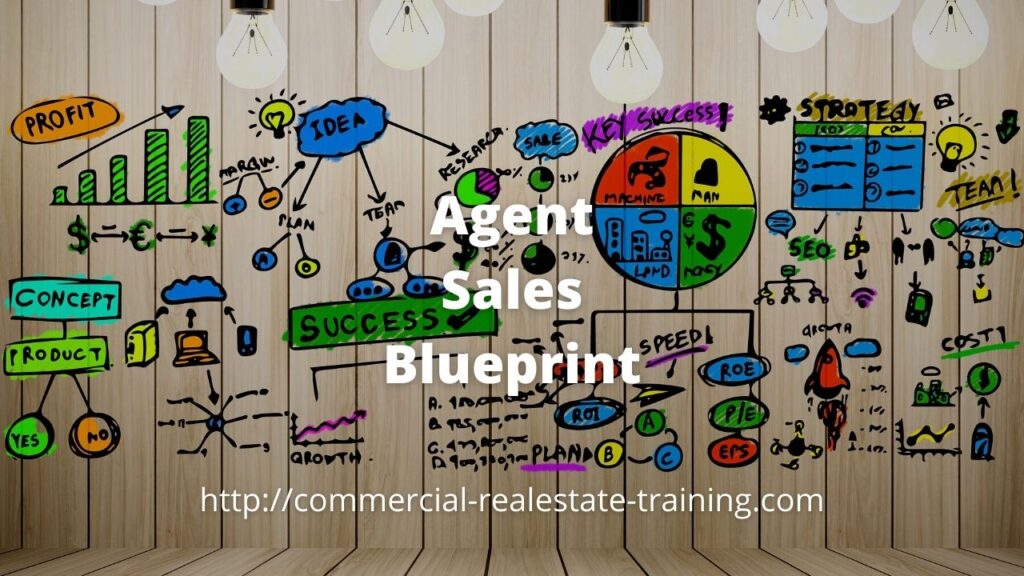Systems to Follow in the Sales Communication Process in Commercial Real Estate
When you consider all of the variables in commercial real estate brokerage sales, you will see that there is a distinct process and a series of stages to be worked through.
That then can be called the ‘sales communication process’, and it should be refined and optimized by each and every broker or agent. When you understand the process, you can improve it.
There is no point in being ‘ordinary’ in our industry; refine your sales systems and improve them personally over time.
Improve your systems
If you are like most brokers today, you will be looking to improve your listing conversions and ultimately the commissions (the end result of transaction activity). Start your activities and marketing systems with the end in mind. It is a good opportunity to look at the ‘sales communication’ methods and systems that you are using today.
Understand each part of the pipeline of activity so that you can improve your conversions through all of the stages. Your strengths and weaknesses will be evident in the ‘sales process pipeline’, so you can build on your strengths and resolve your weaknesses through practice. Top agents do exactly that. Self-improvement is a good thing.

The Sales System
In order of activity the following stages are identified as being very relevant in commercial real estate brokerage:
- Researching the local area comprehensively – There will be segments of the local property market that are ‘prime’ for change and listing activity. Where are people inquiring about local property? What are they looking for and when do they need it? The research process will help you answer those questions.
- Prospecting for clients and listings – You do need a prospecting model that you understand and can implement each day; some parts of the model will need to be honed and practiced for the location and the types of people that you work with.
- Presenting your services – Do you know why someone should choose you and your real estate services over that of others? That is an important question that should be clearly set in your own mind.
- Inspecting the property – Develop a specific inspection system that shows your professionalism. You can inspect the property in unique and specific ways to show the client that you really understand how to show the benefits of the asset and the opportunities of any sale or lease scenario. A professional inspection process can also help you convert more listings.
- Target market processes and campaigns – Choose the target market to suit the asset and the location. Be specific as you choose the right process as part of target marketing and negotiation encouragement.
- Marketing campaigns – Given the different types of marketing tools available, recognize that the marketing campaign can be quite specific to the asset and the location. There are different ways to market a property, and other listings locally will show you the best ways to achieve results.
- Qualification of interested parties – When people ring you, take them through a qualification process so that you can recognize if you are talking to someone who can afford to lease or purchase the property. Over time you can develop particular questions for different property types. Learn how to qualify professionally and directly. Only let the person inspect a property when you are fully satisfied that they are totally suitable in all ways possible.
- Negotiation stages – Recognize the various stages of negotiation given the property type and location. Remember exactly who your client is in the negotiation process so that the client’s targets are consistently encouraged. There are many twists and turns in any property negotiation. Be prepared to address the differences and the challenges of every property transaction.
- Encouraging offers – Every property transaction is usually a combination of small decisions and small compromises. You are the facilitator to take people through that.
- Closing strategies – The final close is usually the toughest and biggest for the parties. Perhaps it is the price or rent that finally has to be agreed, or elements of the documentation. Ultimately the parties want to achieve a result. Look at the transaction from both directions and then assess the compromises that seem sensible. You can always practice your closing skills in preparation for the variations of today’s property market.
- Documentation creation and accuracy – Some documents in a property situation can be a real challenge. If you need help in putting all the property facts together accurately, then seek help. Don’t lose the momentum of a transaction simply because you don’t know how to document things.
- Follow through to completion – When you have completed the paperwork, and everything has been signed by all parties, make sure that the momentum remains to the very end. Keep all parties moving forward on the elements of the contract or lease as the case may be. You are the catalyst to get everything across the line.
There are plenty of things that you can do here to improve your sales outcomes and your business communication process. Focus into your business, the people, and the listings. Control your listing stock through exclusivity; that’s the rule and not the exception.








